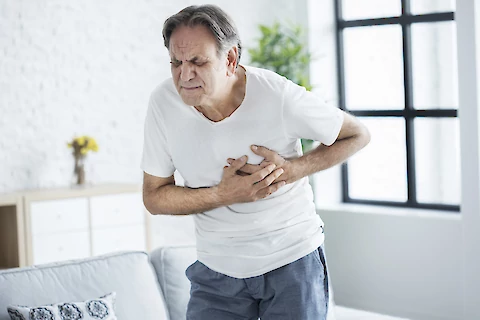
February is not just another month on the calendar. It’s also American Heart Month. It’s the best time to spread awareness of the potential risks of heart disease, particularly heart attacks. Recognizing the signs of cardiac distress and knowing what to do when responding to a heart attack can be the thin line between life and death.
Identifying Heart Attack Symptoms
A heart attack, also known as a myocardial infarction, occurs when a clot obstructs blood flow to the heart. This can cause damage to or destroy part of the heart muscle. Recognizing the common symptoms and signs of a heart attack is crucial for taking quick action. These can vary from person to person but usually include chest discomfort, shortness of breath, lightheadedness, and cold sweat. It’s also common to experience discomfort in the arms, back, neck, or jaw. Every second counts when responding to a heart attack. Seek medical attention immediately if you notice any of these symptoms.
Immediate Actions to Take During a Heart Attack
If you or someone around you is experiencing these symptoms of a heart attack, dial 911 immediately. Emergency medical services can start treating you even before you arrive at the hospital.
Do not try to drive yourself to the hospital, as this may put you and others at risk. While you wait for help to arrive, try to remain calm. If you're not allergic, chew an aspirin to prevent further blood clotting. Remember, these steps are not alternatives to medical treatment. They are immediate actions to take while waiting for professional medical help.
Post-Heart Attack Care
Surviving a heart attack will typically mean making changes. Regular follow-up medical care, a healthy lifestyle, and perhaps most importantly, a positive attitude can significantly improve recovery.
Rehabilitation is crucial in getting back to daily activities and managing future risks. Your doctor may prescribe medication and recommend a heart-healthy diet rich in fruits, vegetables, lean proteins, and whole grains. Regular exercise will likely be part of your routine. Always consult your healthcare provider when starting a new workout routine.
You may also need someone to assist you around the home while recovering from a heart attack. Always work closely with your medical care provider to find the best solutions for your recovery needs. Avoid making modifications to your diet without consulting your care provider.
Senior Helpers Franklin Can Help
Dealing with traumatic situations like cardiac distress in senior loved ones can be overwhelming. However, knowing what to do when responding to a heart attack can potentially save a life and help your loved one receive the urgent medical attention they need for the best possible outcome.
If you're in Franklin, Brentwood, Nashville, Columbia, or Lewisburg and need additional support at home, Senior Helpers Franklin can help. We provide top-notch in-home care solutions to seniors and their families, from medication reminders to meal preparations, all while providing companionship and support. Contact us today to learn more about how we can assist you.